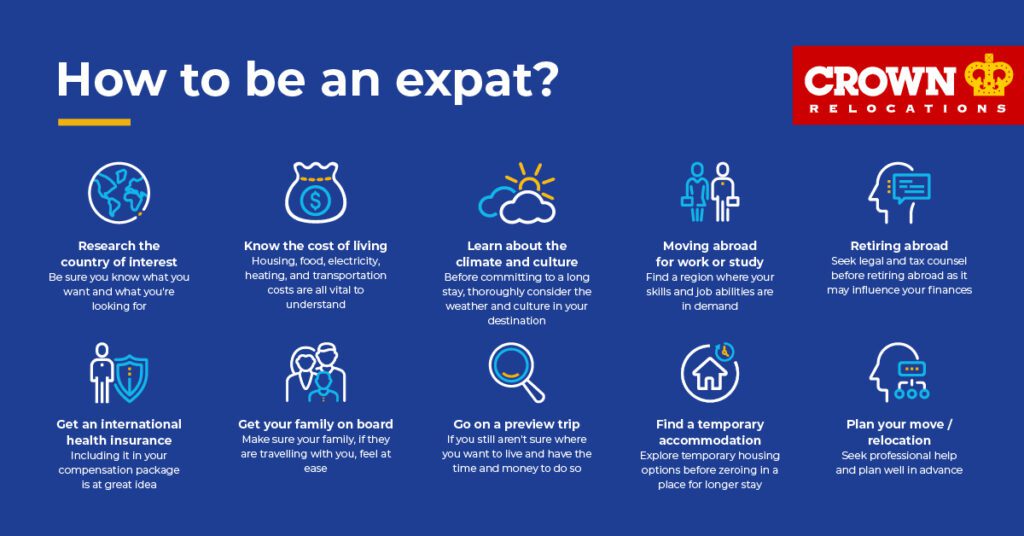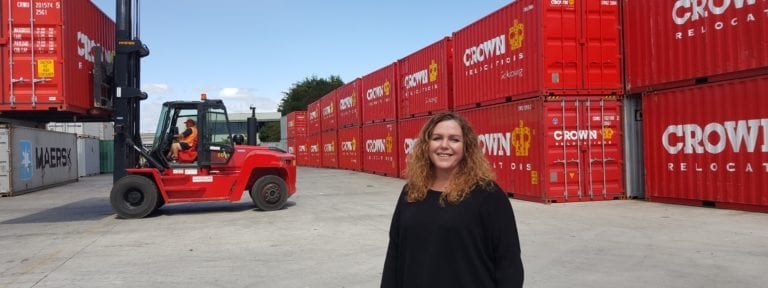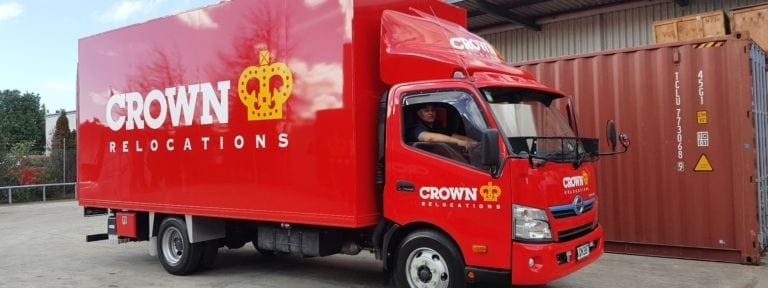Living overseas can be a transformative experience, shaping who you are in a profound way. Many Kiwis choose to make the move abroad for various reasons, whether it’s to spread their wings and gain independence or to seize unique work opportunities.
Adjusting to life as an expat in a new country can be challenging, despite the excitement and potential benefits of living abroad. While the experience can be incredibly rewarding, it often comes with its own set of unexpected hurdles and tricky situations. This is common sentiment among many Kiwis who have made the move, navigated the complexities, and ultimately fallen head over heels for their new home.
What is an Expat?
Who or what is an expat, anyway? An expatriate, or expat, is an individual living and/or working in a country other than their country of citizenship, often temporarily and for work reasons. An expatriate can also be an individual who has relinquished citizenship in their home country to become a citizen of another.
What is it like being an Expat?
Although no two expat experiences are ever the same, it’s safe to say that there are some general issues you’ll probably run into as you join the expat community. Thus, whenever you eventually bid farewell to home for months (or years) at a time and traverse the vast world that surrounds us, this is what you really must look forward to!
1. Continuous learning
If you move abroad and live in a nation where the majority population speaks a different language, you will immediately face linguistic barriers. Expect to be completely perplexed in most circumstances for at least the first few months.
While it could take you several weeks to fully understand routine conversations in a new setting abroad, it always feels nice when someone genuinely gets what you’re saying in a conversation with a shopkeeper or server in a restaurant.
It is one of the most difficult and rewarding things you can do to take a job overseas so that you can learn a new language.
While it takes few years for most to achieve some semblance of fluency, language training courses specifically tailored to the ability and needs of you and your family can help the whole family adapt successfully to the new location. Improved fluency gives you confidence in both business and social situations.
2. Getting a grip on culture
One of the first experiences of being an expat is realizing how little you know about your new country of residence and the subtleties of the culture that you must learn to comprehend if you want to feel you belong there.
The culture shock and getting to grips with a new way of life in social situations calls for deeper understanding of the society ensuring better integration and positive experience in a foreign land.
Even though you can initially feel lost, this is the test that all new expats must pass; it determines if your time abroad will be temporary or whether your new nation will gradually become your home.
3. Making friends / overcoming loneliness
Change can be scary, but being an expat is a wonderful opportunity. Embracing the move you have made is a key step – it’s important to remind yourself why you decided to make the change in the first place.
Stepping outside of your comfort zone is vital when trying to settle in a new place. Although embracing a different culture can be challenging, it’s important to try and engage with it to feel more at ease. This will help stop feelings of loneliness and give you a real sense of belonging.
It is recommended to try out local art, culture or sport – it may even mean trying to cook the local cuisine. It’s a wonderful way to meet new people and learn more about the local culture.
If you are feeling isolated living in another country, chances are you aren’t alone. Finding other expats to socialize with is a great way of feeling more settled. Consider attending an event at the world’s leading expat network, InterNations. This would give you the chance to meet with like-minded people near you.
Living so many miles away from home can leave you feeling isolated and lonely. Thanks to digital technology and good old-fashioned telephones, you don’t have to feel left out. Scheduling fixed times to speak with friends or family back home can help you deal with any feelings of loneliness.
4. Opening up to a multi-cultural setting / environment
No matter where you relocate abroad, you’ll discover that expats from all over the world have an unspoken but strong link with one another since you all share a common understanding of the struggles that newcomers to a foreign country face.
When you move abroad, it’s important to establish a network of local acquaintances, but you should also make friends with other expats because it will help you stay sane. Meeting up with a bunch of fellow expats to discuss the common issues you face and finding ways together to traverse challenges together is what keeps one going.
How to be an Expat?

1. Researching on the country of interest
Before moving abroad, be sure you know what you want and what you’re looking for. The quicker you can get settled in, meet others who share your interests, and begin to feel at home, the better.
A friend or relative who lives abroad can help make the adjustment much smoother. Try to find out whether any of your family or friends who have visited those areas or have entertained visitors from abroad know somebody there.
It’s also crucial to think through certain practical issues before you get started. You must thoroughly research the visas you require. Renew your passport and ensure your travel documents are up to date. Research health concerns and vaccinate, if necessary.
2. Cost of living
If you’re moving to a city, you might discover it listed in the Mercer city ranking for that year. To learn more about a certain region in-depth, you might need to look for online expat forums.
Housing, food, electricity, heating, and transportation costs are all vital to understand, and one may be more expensive than you’re used to, even if the others are inexpensive.
If your new pay is too low to match your relative low cost of living or if your country’s currency is weak, it might not benefit you. Always convert expenses and salaries into the currency you are accustomed to using and keeping your funds in.
3. Learning about the climate and culture of the country
Before committing to a long stay, thoroughly consider the weather in your destination, especially if you want to engage in outdoor activities. Find out how simple it would be to maintain any interests or hobbies you may have when you are away from home.
Your choice may also be influenced by geography, city size, crime rates, and the ease of communication with the outside world. Reading destination guides for specific cities or areas might help you focus your search from a whole nation down to the local level, where the climate, attractions, and culture can differ dramatically.
4. Moving for work or study?
If you are a student, explore study abroad options. Only students or perhaps recent grads are eligible for this option. Study abroad programs are among the simplest methods to travel abroad for an extended period because your lodging is taken care of and you meet people by enrolling in a foreign university. Even though the trip only lasts for a semester or academic year, it can provide you a complete exposure to another nation and help you decide whether you want to go abroad permanently.
Applying for work abroad programs is the simplest method to learn what living abroad entails. As an expat living abroad, work abroad programs provide you a wonderful blend of structure and independence. You have access to local assistance when you need it, which is especially useful while looking for a job and a visa sponsor. However, you also have the freedom to choose your own weekend plans, side projects, and your real activities abroad.
Finding a region where your job abilities are in demand is especially crucial if you intend to employ specialist job skills overseas but do not already have a job. If you can, join an international professional organisation to make contact with people in your industry who have worked overseas and ask them for advice on moving.
5. Retiring abroad?
It’s a terrific way to become an expat and is growing in popularity among people all over the world to retire abroad. In general, the Sunshine Coast in Australia and Asia are among the most well-liked locations for expat retirement. This is due in part to the area’s great weather, beaches, and affordable cost of living.
Before retiring abroad, you should seek legal and tax counsel because it may have a big influence on your money.
6. Get an international health insurance
Getting an international health insurance plan that will cover medical expenses wherever you decide to live is essential if you wish to move abroad. Medical costs while living abroad can be very high, and the local medical system in your new country might not be of the highest caliber, particularly if you move to a developing nation. Medical care can be shockingly pricey for foreigners in several Asian nations like China and Singapore.
Asking your expat employer to include the cost of health insurance – and perhaps even expat disability coverage – into your compensation package when working abroad is a good idea.
7. Get your family on board
Make sure your family, if they are travelling with you, feel at ease. Find schools where your kids will feel welcome and have their language needs accommodated. Through our school search services we provide local advice on schooling for every age, including day care and pre-schools.
Does your partner worry about his or her future employment, comfort, or safety? Our partner support services helps your spouse with understanding the employment options available at your new location.
The same step-by-step guide can be used by other family members to pinpoint potential difficulties and find solutions to address them.
8. Go on a preview trip
If you still aren’t sure where you want to live and have the time and money to do so, you might consider visiting your potential destination to decide if you would like to live there. To gain a better sense of how life is in each place, try to stay there for at least three or four weeks.
A hotel stay may not be of much help if you would genuinely be moving in with a local family. Instead, think about what kind of lifestyle you’d be able to sustain permanently. Try to engage with the locals to learn about their lifestyles and leisure pursuits.
9. Finding a temporary accommodation
It’s not a smart idea to buy a house or sign a one-year lease before visiting the building or neighborhood, unless you already know the region you’re relocating to. Finding a place, you can rent on a month-to-month basis while you look into long-term choices is a safer strategy.
Our temporary housing assistance as well as home search services can help you with the transition as you look out for your dream home in a new city.
10. Dealing with your move
Planning your move to a T is an onerous task and it is recommended that you start preparing for the relocation in advance. Get a weekly plan in place before you move. Research moving companies, get competitive quotes and choose your preferred mover.
We advise full company packing service and transit insurance. Get professional help while dealing with your possessions as you get ready to move abroad.
Get rid of excess stuff and move with things you require at your destination. Storage options available with relocations company can help you store excess furniture and household goods at origin and destination for rental on a monthly basis.
We can help
Moving abroad can be both exciting and daunting. We’ll do all we can to support the logistical and emotional needs of you and those moving with you. Our full suite of services from origin to destination is designed to help you go knowing and start living as soon as you arrive.
Send us details of your planned move and we’ll get back to you as soon as we can, ready and waiting to answer all of your questions and make sure your move is as smooth as possible.













































